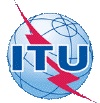About the Workshop
Background Information
In the last couple of years we have witnessed an incredible evolution of wireless technologies that can provide a viable solution to research challenges in Africa. Enhanced technological infrastructures, coupled with effective communication to stakeholder communities, could improve societal resilience in responding to the broader impacts of climate change and severe weather in Africa. This may include impacts on agriculture, energy production, access to water, conflict, human health, ecological biodiversity and the ability for African scientists to communicate with their scientific counterparts around the world.
Nature of the Workshop
The participants in the workshop will be trained on applications of wireless ICT and Wireless Sensor Networks technology, in order to foster science and research in Africa. The workshop will consist of presentations, demonstrations and hands-on sessions to learn how to setup, deploy and maintain wireless networks and wireless sensor networks. With the final goal of connecting African Research Centres to the Internet, the Workshop intends to describe the state of the art in Wireless Technologies in informative and hands-on ways.
Scope and Objectives
The workshop will include a mix of theoretical and practical sessions. Upon completion of this workshop, participants will be able to:
- understand the basics of radio physics;
- understand the fundamentals of wireless networking;
- design and deploy a point-to-point link;
- understand the basics of wireless sensor networks for data collection in the field;
- setup a network of sensors using the open hardware Arduino module;
Organizers

For more than 45 years, the Abdus Salam International Centre for Theoretical Physics (ICTP) has been a driving force behind global efforts to advance scientific expertise in the developing world. Founded in 1964 by the late Nobel Laureate Abdus Salam, ICTP seeks to accomplish its mandate by providing scientists from developing countries with the continuing education and skills that they need to enjoy long and productive careers. ICTP has been a major force in stemming the scientific brain drain from the developing world. ICTP alumni serve as professors at major universities, chairpersons of academic departments, directors of research centres and ministers of science and technology in nations throughout the developing world. Many of them have been recognized in their own countries and internationally for their contributions to science and science policy. The impact of ICTP extends well beyond the Centre's facilities to virtually every corner of the Earth.
ICTP website »
The International Telecommunication Union, originally founded as the International Telegraph Union, is a specialized agency of the United Nations that is responsible for issues that concern information and communication technologies.The ITU coordinates the shared global use of the radio spectrum, promotes international cooperation in assigning satellite orbits, works to improve telecommunication infrastructure in the developing world, and assists in the development and coordination of worldwide technical standards. The ITU is active in areas including broadband Internet, latest-generation wireless technologies, aeronautical and maritime navigation, radio astronomy, satellite-based meteorology, convergence in fixed-mobile phone, Internet access, data, voice, TV broadcasting, and next-generation networks. ITU, based in Geneva, Switzerland, is a member of the United Nations Development Group. Its membership includes 193 Member States and around 700 Sector Members and Associates.
ITU website »
The Network Startup Resource Center (NSRC), based at the University of Oregon, was established in 1992 to provide technical assistance to organizations setting up computer networks in developing areas for collaborative research, education and international partnerships. Over the past twenty years, the NSRC has worked with universities, research institutes, Internet Service Providers, non-governmental organizations, governmental and supranational agencies, and industry to help develop networks and cyberinfrastructure resources in Africa, Asia/Pacific, Latin America/Caribbean, and the Middle East. The NSRC is partially funded by grant number 0963081 from the International Research Network Connections (IRNC) program of the National Science Foundation and Google, with additional contributions from dozens of public and private organizations.
NSRC website »